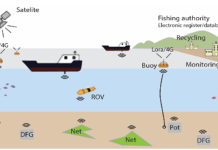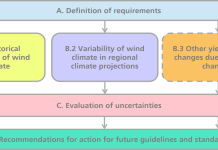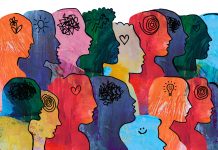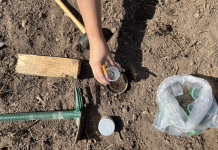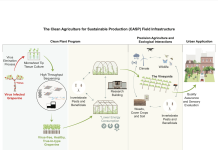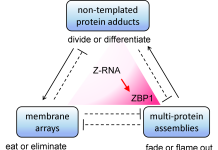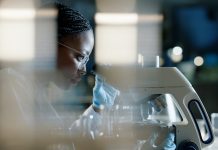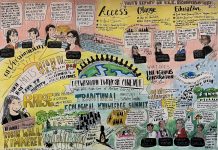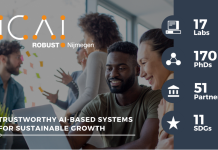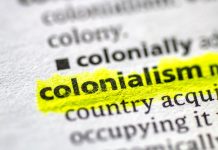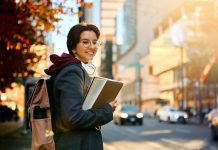Open Access Government produces compelling and informative news, publications, eBooks, and academic research articles for the public and private sector looking at health, diseases & conditions, workplace, research & innovation, digital transformation, government policy, environment, agriculture, energy, transport and more.
Home 2024
Archives
Modeling cigarette smoking exposure in subsets of the population
Understanding and acknowledging various factors that impact cigarette smoking and exposure is critical when creating public health interventions to curb tobacco use. Here, Theodore R. Holford from Yale University discusses the impact of different approaches to tobacco control.
Marine plastic litter vs clean and living water
Marine plastic pollution is a global crisis with increasing impacts on the environment, marine life, and human health. Multinational and national organisations are working to develop solutions that are accepted by all stakeholders connected to the marine environment and fishing industry.
GERICS supporting climate-resilient wind energy sites
Dr. Irem Isik Cetin and Dr Elke Keup-Thiel offer expert insights on how GERICS supports the climate-resilient development of wind energy sites.
Vaccine hesitancy and the challenge of successful scientific communication
Drawing on personal experiences and public discourse, Dr. Klaus Eyer, an Associate Professor at Aarhus University, explores the challenges of communicating about vaccine science to address vaccine hesitancy.
Understanding and predicting the intergenerational transmission of mental illness
The FAMILY consortium aims to improve the lives of mentally ill persons and their families by focusing on understanding the mechanisms of intergenerational transmission of mental illness from parent to child.
Emissions from building and construction can be halved with current technologies and practices
Filip Johnsson and Ida Karlsson from Chalmers University of Technology argue that building and construction emissions can be halved with current technologies and practices in place.
The dynamics of soil health
Thomas Gumbricht from Stockholm University and xSpectre, with Sonia Meller from Digit Soil, discuss what we need to know about understanding the dynamics of soil health.
A novel route to secure and low-power accelerators for edge computing
Dr. Fabio Pavanello, Researcher at CNRS/CROMA Laboratory, guides us through a novel route to secure and low-power accelerators for edge computing, or in other words, the NEUROPULS approach.
Innovative grape and wine industry research in a cool climate region
Jim Willwerth, Assistant Professor and Researcher at the Cool Climate Oenology and Viticulture Institute (CCOVI), discusses how the Institute is supporting the transformation of Canada’s agricultural ecosystem, and a self-reliant, sustainable model for the rest of the world.
Decarbonizing the textile industry: How Ever Dye is revolutionizing dyeing processes
While the textile industry is continuously evolving and becoming more technologically advanced, it still relies on highly polluting and energy-intensive processes. Victor Durand, Head of Operations at Ever Dye, shares the company’s commitment to changing this and decarbonizing the textile industry.
Cellular scaffolding: Crowdsourcing cellular responses in health and disease
In this article, Dr Alan Herbert discusses how different types of cellular scaffolds interact and impact the risk of diseases, citing the example of Z-RNAs pushing cells to inflammatory states in tumors and autoimmune conditions, setting the stage for new therapeutics.
The vital role of sustainable chemistry
Prof. Dr. Cecilia Van Cauwenberghe, PhD, MSc, BS, MBA, Research Director at Everest Group, sheds light on sustainable chemistry, including how breakthrough innovations drive global change.
A traditional ecological knowledge summit
The Global Center for Climate Change and Transboundary Waters (GCTW) cohosts a Traditional Ecological Knowledge Summit (1), as Gail Krantzberg (2), Peter Czajkowski, Dawn Martin-Hill, Rohini Patel, Hiliary Monteith, and Drew Gronewold explain.
Large-scale data fusion in astronomy
Peter Melchior, Assistant Professor of Statistical Astronomy from Princeton University, provides a compelling analysis of large-scale data fusion in astronomy.
Trustworthy AI for semiconductor manufacturing
Marcel van Gerven, a Professor of Artificial Cognitive Systems at Radboud University, discusses how his team’s research on AI models, algorithms, and demonstrators could serve as a blueprint for the semiconductor manufacturing industry.
Impact of colonialism: Where are our stories?
Geraldine Balzer from the University of Saskatchewan asserts that our stories are found when the Empire comes home; in this impact of colonialism focus.
Australia’s soils have sent us a warning: We should listen
Praveena Sridhar, the CTO of the Save Soil Movement, believes that Australia’s soil has been signalling a message to us, and as a result, we ought to pay attention.
The sociology of bridge: Sport recognition for mind sports
The game of contract bridge, as we know it today, originated in the 20th century – but what lies ahead for bridge as a mind sport? Professor Samantha Punch, the academic behind “Bridge: A MindSport For All”, provides the answer.
Impact of student funds and fellowships on climate change research and human well-being
Sophie Farmani, Assistant Professor, Arts, Communications and Social Sciences Department, at the University Canada West, charts the positive impact of student funds and fellowships on climate change research and human well-being in the Canadian context.
Delegation of financial decision-making to spouse in old age
Professor Anup Basu from Queensland University of Technology explains the process of delegating financial decision-making to spouses in old age.


